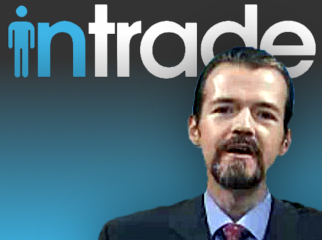 More light has been shed on those ‘financial irregularities’ that led to Sunday’s abrupt closure of Dublin-based prediction market Intrade. It seems that a month prior to Intrade shutting its doors, auditors had voiced concerns about $2.6m in payments to bank accounts belonging to Intrade’s founder, John Delaney (pictured right), who died May 21, 2011, while attempting to scale Mount Everest. In financial records Intrade filed with Ireland’s companies registration office, auditors noted that proper books of account for the year ending December 2011 had not been kept by Intrade and that there was “insufficient documentation” surrounding payments made to Delaney and “other third parties.”
More light has been shed on those ‘financial irregularities’ that led to Sunday’s abrupt closure of Dublin-based prediction market Intrade. It seems that a month prior to Intrade shutting its doors, auditors had voiced concerns about $2.6m in payments to bank accounts belonging to Intrade’s founder, John Delaney (pictured right), who died May 21, 2011, while attempting to scale Mount Everest. In financial records Intrade filed with Ireland’s companies registration office, auditors noted that proper books of account for the year ending December 2011 had not been kept by Intrade and that there was “insufficient documentation” surrounding payments made to Delaney and “other third parties.”
Brian Dunne, auditor at Dublin-based accountancy Caulfield Dunne, wrote an opinion dated Feb. 4 in which he noted that Delaney’s accounts had received payments of $1.2m in 2010 and $1.4m in 2011 for which proper documentation was not available. Intrade’s current slate of directors was appointed long after the payments were made, and thus they are not in a position to provide clarity as to the justifications behind these payments. However, Dunne stated that the directors were aware that the payments “had a material effect on the opening balances of the company at January 1, 2011.” Intrade posted accumulated losses of $1.6m in 2011.
The Financial Times revealed that Intrade’s list of shareholders in 2011 included hedge fund managers Paul Tudor Jones and Stanley Druckenmiller, and a trust connected to National Futures Association chairman Christopher Hehmeyer. None of these shareholders has yet seen fit to comment on Intrade’s demise. In the absence of hard facts, speculation is mounting that Intrade’s demise was the result of a failure to properly segregate customer accounts from operating capital. In addition to the debacle that was Full Tilt Poker, similar shenanigans brought down spread betting firm WorldSpreads a year ago, and the fallout resulted in WorldSpreads’ Irish offshoot MarketSpreads being hit with a temporary suspension of trading until it could demonstrate ‘capital adequacy.’
